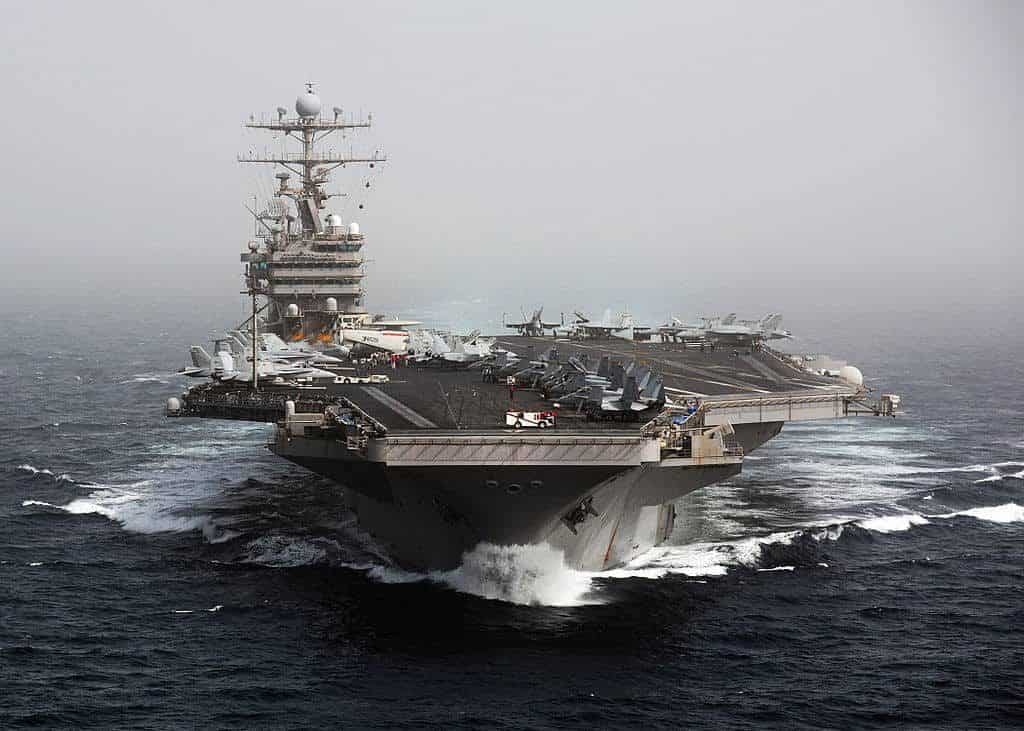In March 2003, the United States decided to invade Iraq. To do so, it had to violate the United Nations Charter, of which it had been the main architect in 1945.
As the main justification for its unilateral action, the Americans put forward their desire to establish a solid democracy in the country, which is 55 per cent Shiite, 25 per cent Sunni and 20 per cent Kurdish. The idea was not just to turn Iraq into a reliable ally of Washington.
The broader aim was to spread democracy. as if by contagion, to the whole region, leading in the medium term to what President George W. Bush called the “Greater Democratic Middle East”. According to the Kantian principle that democratic nations do not wage war on each other, the Americans hoped that, in the end, all the nations of the region would, once and for all, make peace with Israel.
The White House and Congress did not skimp on this grandiose project. Since 2003, Washington’s Iraq policy has cost the American taxpayer more than a trillion dollars. That is the equivalent of 75 times the annual GDP of a country like Madagascar. The price in blood will also have been significant: four thousand American soldiers killed and tens of thousands wounded, some of them seriously.
Seventeen years later, it must be said that the result is not dazzling.
On 5 January 2020, the Iraqi Parliament – created by a constitution dictated by American jurists and adopted in a 2005 referendum supervised by American forces – passed a resolution demanding the departure of the 5,200 American soldiers stationed in the country.
In Washington, the State Department has called on all US citizens residing in Iraq to leave the country immediately. President Trump threatened Iraq with trade sanctions “even worse than those imposed on Iran”, should the government in Baghdad carry out the parliamentary wish. It seems that a divorce between Washington and Baghdad is on the way.
Iraqi parliamentarians felt humiliated by the Pentagon’s unilateral decision to assassinate a foreign personality invited to Iraq. Killed by an American missile at Baghdad airport on January 3, Iranian General Ghassem Soleimani, the real number two in the mullahs’ regime, was to be received by the Iraqi Prime Minister. Adel Abdel Mahdi, an intermediary between the Saudis and the Iranians, was awaiting his response to a message sent by Riadh.
Soleimani was undoubtedly a strategic opponent of the United States in the Middle East. As head of the Iranian external forces, he played a significant role in the political-military takeover of four Arab capitals by Persia: Beirut, Baghdad, Damascus, Sanaa.
It was he who went to see Putin in Moscow in June 2015 and succeeded in convincing him to send the Russian army to the rescue of the Syrian Baathist regime of Bashar al-Assad. It was he who succeeded in arming the Houthis of Yemen, enabling them to respond harshly to the aerial bombardments of Sana’a, led by Saudi Arabia since 2015. It was he who most likely was behind the demonstrators who entered the US Embassy in Baghdad (without reaching his diplomats) on 31 December 2019.
Was it necessary to humiliate the elected Iraqi authorities? Could Trump not understand that even the weakest nations remain attached to their dignity and sovereignty? Wouldn’t it have been smarter for the Americans to negotiate secretly with Soleimani? Are they not negotiating, in Qatar, with the Afghan Taliban?
Enjoying the confidence of the Iranian Supreme Guide, this pragmatic general had the advantage of being able to make security deals and ensure that they were respected. Moreover, he had fought remarkably well against the Sunnis of the Islamic state, enemies of America.
Contrary to what US Secretary of State Mike Pompeo said, the assassination of Soleimani did not make the planet any less dangerous for Americans. Quite the contrary. This general has already been replaced. But his assassination has inflamed public opinion in Iran, destabilizing the pro-Western reformist movement there. The regime has resumed its nuclear programme.
What a mess Trump has created in three years. In July 2015, we were very close to an Iranian-American reconciliation, following the signing of the Vienna nuclear agreement. Today, Washington and Tehran are on the brink of war.
As for Iraq, it is running towards a strategic catastrophe. Its Shiite south has been handed over to Iran and its Sunni north west has been abandoned to an Islamic State that is always ready to resurface.
This article was first published in Le Figaro.





